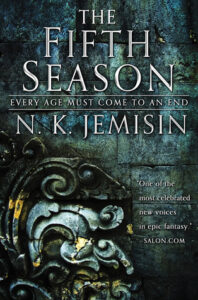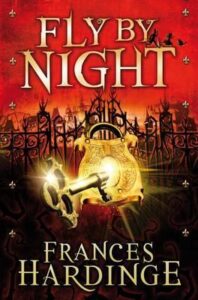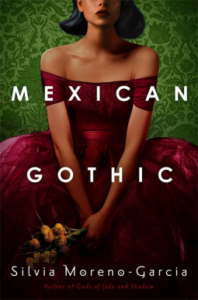 Black Leopard, Red Wolf, Marlon James
Black Leopard, Red Wolf, Marlon James
Black Leopard, Red Wolf follows the adventures of a man named Tracker, from childhood to a cell where he is forced to tell his life story. He has a wolf eye and a nose — he can track anything, anyone, once he has scented it once, and that’s how he gets pulled into a quest to save the son of the king’s sister, prophesied to save the kingdom. Not that the prophecy matters much to Tracker: he’s just in it for the adventure, for the sake of a shapeshifter he loves named Leopard, and gold. Mostly the gold.
The book was pretty hard going for me. It’s rife with violence, sexual and otherwise; the narration is stream-of-consciousness, in rhythms of speech that aren’t very familiar to me. Sometimes it lacks the expected punctuation or grammar, capturing a whole different kind of voice. I found myself skipping parts, because it would take so long to say a simple thing. If a man fires three arrows, one after the other, then each arrow will be described. This isn’t a quote, but it’s an illustration of the style: “Leopard fired one arrow and a man fell down. Leopard fired another arrow and a man fell down. Leopard fired another arrow and another man fell down.”
As a stylistic choice, it adds a certain rhythmic energy, and it all adds to a clear picture of Tracker, so that you can almost hear his voice narrating… but I wasn’t a fan and found it hard to concentrate on (in the same way that it can take me a while to feel my way into the style of a Norse saga, or particularly the set-piece bits of The Odyssey).
Plot-wise, there’s a lot of back-and-forth to get nowhere, but the story builds up in its own time and I never quite got to the point where I got fed up and just wanted to put it down. I did want to know what happened. There are definitely some moments where it got under my skin, too, particularly regarding Sadogo, and another character from later in the book. The violence of it all really put me off, though; I can’t say I’d call it gratuitous, because it says something about this world and about Tracker, his companions and his outlook. It does begin to feel excessive, though.
I don’t think I’ll read the other books — I believe it’s meant to be a trilogy, and apparently the next book focuses on a character I really don’t care for. Not that I particularly care for Tracker, either! It seems like an awful long time to spend with characters I don’t enjoy, since I’m rather the type to hang a lot of my interest in a story on the players. I don’t have to like them, but I do have to be invested, and I barely was.
So, glad I read it, because there are interesting stylistic choices and a few bits I did rather like (to explain would be a spoiler, but it involves Tracker’s relationship with a particular character who appears later in the story, and secondarily with some other side characters). But… I don’t think it’s for me.
(Remember, I rate books on my enjoyment of them, not an objective assessment.)









